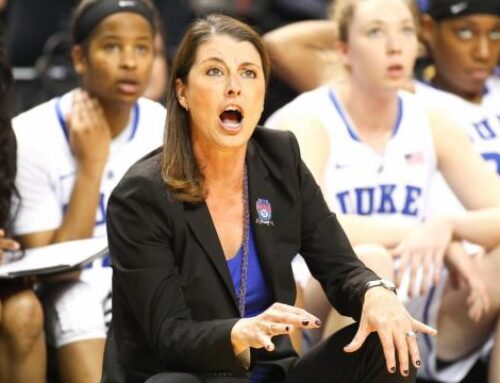The defining moment for a coach – to take, or not to take, responsibility
Your team plays. They play poorly. Your athlete competes. They fall well short of the mark. You planned, trained, competed and you landed here? With a loss or poor results? Are you kidding me!!
Some play the blame game:
Brian Kelly, Notre Dame

Kelly throws players under the bus
Jose Mourinho, Manchester

And some don’t, instead choosing subtle language and decisions to steer the attention away from the players.
Urban Meyer, Ohio State

In a moment, you define yourself as a coach by how you respond. Ultimately, there are two choices.
Great coaches take responsibility. 100% of it in the public domain for certain.
What could I have done to improve their performance in the moment? Since a coach’s job is to put athletes in their place of greatest potential they must ask themself this question.
Other coaches externalize in this moment. They put the responsibility on the athlete (they didn’t perform) or they chalk it up to some uncontrollable third variable – they didn’t have “it” on the day, they were tired, they just aren’t committed.
Ultimately, as a coach you are your team, whether you like it or not. You thought they were tired or flat – it is your job to change this. You had an athlete exposed due to limited athleticism or skill – you either use it as a learning moment for them or you make adaptations. The referees….. oh, the referees. They were responsible for this performance. Blame the referees and you give your athletes a built in excuse to lose. Period.
I came across this table from John T. Reed that I thought was really interesting
“Mistakes killed us”
This is meant to be interpreted, and is interpreted, by listeners to mean player mistakes. Some losses are caused by coach mistakes.
“The best team won”
Sounds magnanimous, but the “team” is the players, not the coaching staff. Some losses are caused by errors or omissions by the coaching staff.
“You can’t win if you turn the ball over X times”
Since only players turn the ball over, this places all blame on the players. In fact, coaches also cause turnovers by having players who are prone to fumbles handle the ball, by having players who have not had enough practice repetitions of receiving handoffs receive handoffs in games, by calling a pass play when a player who has a propensity to throw to the wrong team is at quarterback, by coaching the team in general such that it falls behind in games and has to engage in turnover-risky behavior like throwing predictable passes to catch up.
“Someone needed to make a play but no one did”
Since only players can make plays, this places all the blame for the loss on the players. The phrase “make a play” really has no meaning. In the typical game, no one on either team “made a play” in the sense of an extraordinary, great play. Rather, one team out-executed the other play after play throughout the game and/or one team had a better game plan. If a game turned on one play or the lack of one play, the coach should be faulted for coaching in such a way that it was so close.
“The other team wanted it more”
Coaches know better than this. This is pandering to the idiots in the stands who analyze games with such sweeping global statements. In fact, you have to analyze film of a game to see why each individual play failed. In almost every case, it was because one or two members of the failing team did not do the specific job assigned to them for that play against that opponent configuration. That, in turn, could be caused by bad coach decisions with regard to practice time, depth chart, scouting analysis, and so forth.
“We got outplayed”
Magnanimous “we” notwithstanding, only players are allowed to play.
Have you been there before? We all have!
Food for thought. When your athlete is struggling or your team is in a rut, ask yourself the following question:
What can I do, right now, to help them? The athlete may be throwing hours of training aside as they perform poorly but there is likely an answer for why this is happening. But, for now, your job is to adapt and support them, without sacrificing core principles that you believe in.
The answer may be to let them fail and take advantage of the lessons or to find that magic coaching moment where you turn their world around and allow them to experience success, when they normally would have failed.
This is part of the art of coaching….




